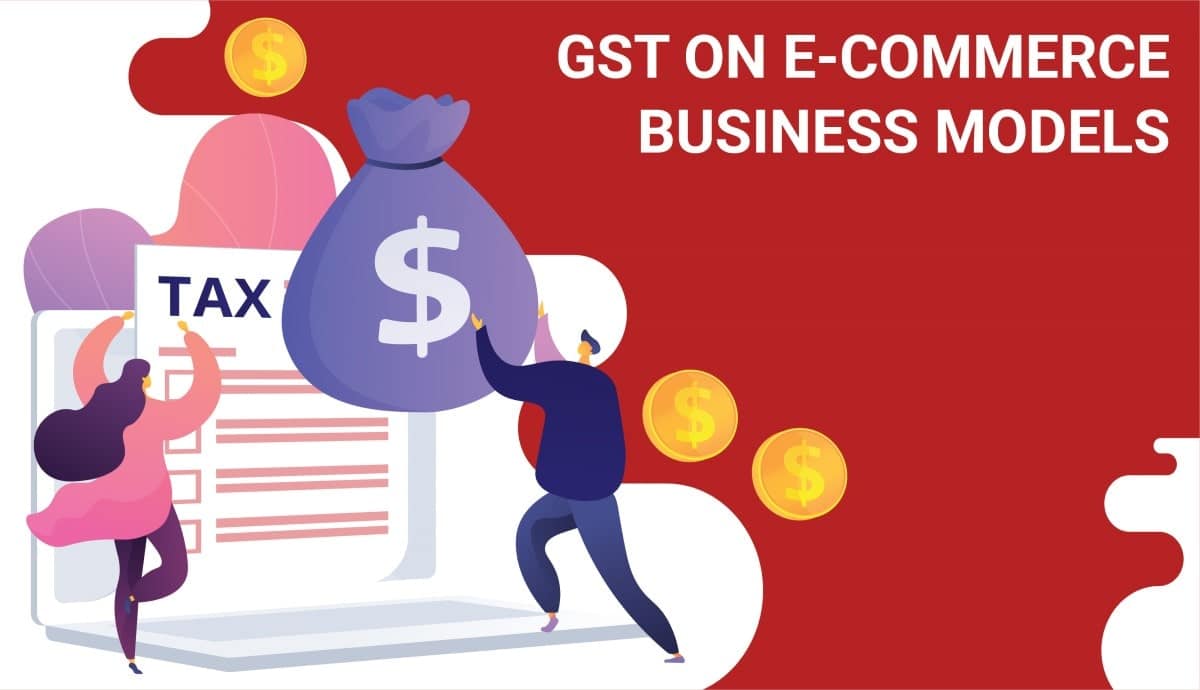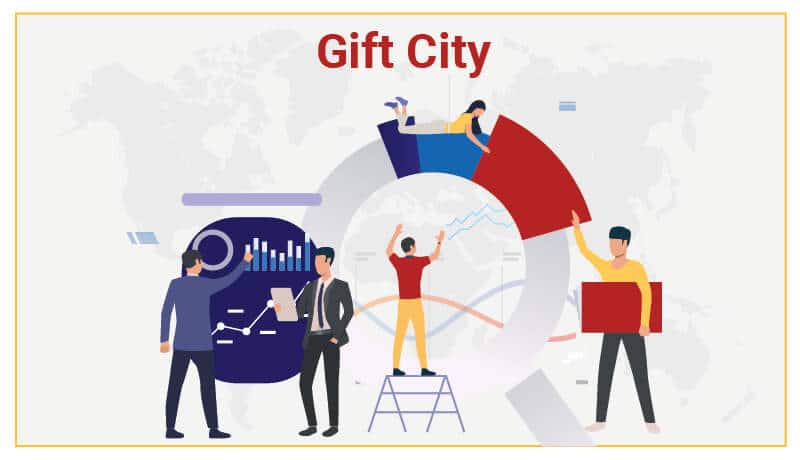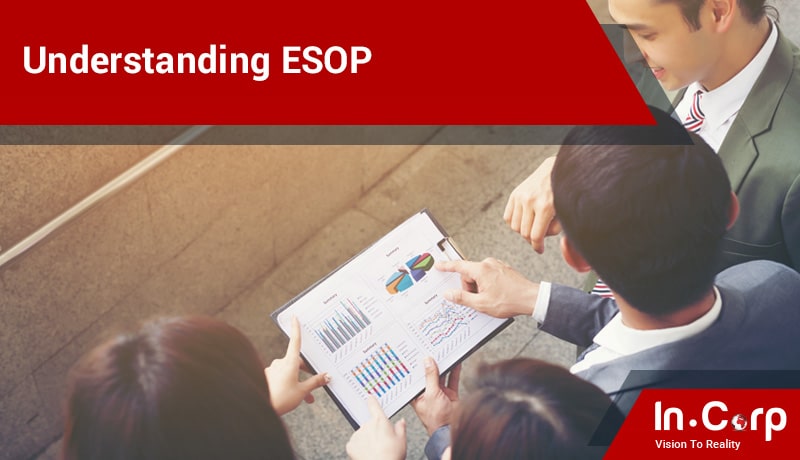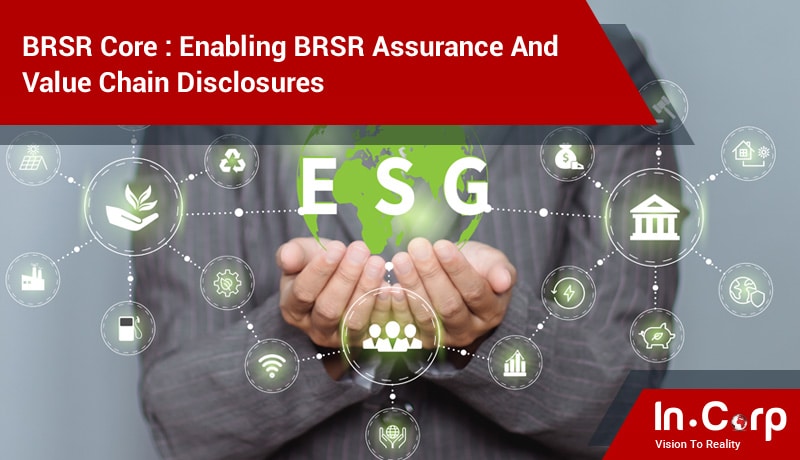These days various innovative business models are coming up under E-commerce. As a result, you can find many practical issues regarding the GST provisions and laws. There are provisions made under GST law to suit the requirements of the e-commerce industry. In this article, we discuss the impact of GST on E-commerce on different business models.
Firstly, Let Us Try To Understand The Key Terms:
1. Electronic commerce refers to the supply of goods and/ or services over an electronic or digital network. It includes the supply of digital products.
2. An electronic commerce operator refers to a person who owns, operates, and manages an electronic or digital platform or facility for electronic commerce.
Accordingly, you need to understand the different business models of E-Commerce companies. This, in turn, will help you understand the relevant GST implications.
Implications Of GST On E-Commerce Under Different Business Models:
- Today, you can find a lot of information freely available on various websites.
- Readers could use this information to promote or understand the technical aspects of certain goods/ services. It could also be used to generate some interest in a particular topic.
- However, you must note that these websites do not supply goods/ services over an electronic network. Hence, these websites cannot be considered as e-commerce operators.
- Further, if a consumer purchases such goods/ services offline through the information of goods or services displayed online, it shall not be considered as supply over E-Commerce.
- For example, Ms. T is selling a laptop and displays the specifications of the products online. Ms. M, a customer, buys the laptop offline after looking at these specifications online on the portal. This will not be considered as a supply over E-Commerce.
- It is an E-Commerce portal that buys the goods themselves and supplies them directly to customers. It is also known as direct selling over the internet.
- Under this model, you do not allow any third party to share information or make any supply over your personal website.
- As these websites supply goods/ services over an electronic network for some consideration, they will come under electronic commerce. Further, you will be termed an electronic commerce operator if you own, operate, or manage such websites.
- However, supplies are made directly by the electronic operator. Hence, specific E-commerce GST provisions will not be applicable.
- For example, Bigbasket has its own website where all purchases are made on its own account. Bigbasket website does not list products of other sellers.
- In this case, a supplier can upload their product details on the E-commerce platform. This platform is also known as a Marketplace. It enables the supplier to display and promote the goods or services online. Potential buyers visit these platforms, select products, and place orders with the supplier.
- The details of the order placed are then forwarded to the seller by the E-Commerce portal.
- The seller will send the goods directly to the purchaser.
- The seller raises sales invoices; however, the E-Commerce portal receives the payment.
- The E-Commerce portal then raises the bill of service charges towards the seller. They shall deduct their dues towards their service charges and remit the balance amount to the seller.
- All such electronic commerce operators and their suppliers of goods must obtain registration under the GST law mandatorily. It includes cases where they do not exceed the threshold limit of turnover for registration.
- However, suppliers of services will not require mandatory registration if they do not exceed the threshold limit of turnover for registration.
- For example:
Supplier N is in the business of supplying mobiles online through Flipkart. Since supplier N is using the marketplace platform of Flipkart for selling goods, both Flipkart and Supplier N require mandatory registration under the GST law.
Related Read: E-Invoicing Under GST
- This model is similar to the previous one, with one exception.
- Here, the packing and shipping is done by the electronic commerce operator. Goods for sale are stored in the E-Commerce operator’s warehouse. When the E-Commerce operator receives a sales order, he packs and delivers the goods to the customer under the seller’s invoice.
- GST implications are the same as the previous model.
- Under this model, E-Commerce Portals operate as a Marketplace to connect service providers and service recipients and charge fees for the said activity separately.
- For example, A Customer visits the online movie booking website and selects the movie and the place. Then the payment method is selected.
- Online movie booking website collects the entire price of the movie ticket and its own convenience charges.
- Once you pay, a code is created; when shown at the ticket counter of the movie hall, the movie ticket is generated.
- Thus, a movie ticket is generated by the movie hall operator and not by an online movie booking website.
- The online movie booking website keeps the convenience charges. The ticket charges are remitted back to the Movie Hall Operator, who issues the final movie ticket.
- In this case, GST is charged by the seller and E-commerce operator on its respective revenue from its customer.
Determine Your GST Liability By Using Our GST Calculator!
Let Us Try And Understand The Specific Provisions Of GST On E-Commerce Services:
For a specified category of services, the service provider uses the electronic commerce operator’s platform. As the service provider is a small entity, they can’t register on their own and pay taxes.
Hence, paying taxes and complying with the GST provisions is on the E-commerce operator.
The list of the services within this category are as follows:
| 1 |
Transport of passengers via:
For example- OLA, Uber. |
| 2 |
Accommodation provided in: hotels, guest houses, inns, clubs, campsites, or other commercial places for residential or lodging purposes. Exception: If a person supplying such service is liable for registration under tax laws For example- Oyo rooms |
| 3 |
Services such as: house-keeping, plumbing, carpentering, etc., For example- Urban clap |
In respect of these services, the electronic commerce operator is considered the supplier of services for paying taxes. The invoice is issued by the operator as if the operator itself has made the supply.
Regarding the services specified under (2) and (3), the operator is liable for making payment of taxes only if the original supplier is below the threshold limit of turnover for registration.
In such cases, the actual service provider will be liable to register itself and pay taxes if the supplier exceeds the threshold limit.
Under point (1) above, the operator will always be the person liable for making payment of taxes as the supplier, without considering the service provider’s actual turnover. So, the suppliers will not be liable to register themselves or pay taxes in such cases.
For example – Uber’s drivers provide Taxi services to the passenger after using the UBER platform. Here Uber is liable to pay GST.
Related Read: Implications Of GST On Warranty On Sales
What Is Online Information And Database Access Or Retrieval Services (OIDAR)?
- This E-commerce model is similar to the supply of goods over your website. Here the services are supplied by website owners on their own account.
- However, the difference in this model is that the services are provided online with no or minimum human intervention.
- GST Act has some special provision for this E-commerce model as follows:-
- OIDAR services cover services that are automatically delivered over the internet, or an electronic network, with minimal or no human intervention.
- Practically they could be either:
-
- Where the provision of the digital content is entirely automatic
For example – A consumer clicks the ‘Buy Now’ button on a website. The content downloads onto the consumer’s device, or the consumer receives an automated e-mail containing the content.
- Where the provision of the digital content is truly automatic.
Further, the small amount of manual process involved does not change the nature of the supply from an OIDAR service.
-
How Do You Determine The Place Of Supply In OIDAR?
The place of supply of OIDAR services shall be the location of the service receiver.
- Suppose the location of the supplier is outside India and the location of the recipient is within India.
- The GST registered recipient is liable to pay GST under the reverse charge mechanism since India is the place of supply of OIDAR service.
- However, suppose the location of the registered GST supplier is within India, and the location of the recipient is outside India.
- In that case, the given OIDAR service will qualify for Export of service since the supply is outside India (Provided other export conditions are also satisfied).
- Suppose OIDAR services are supplied by any person located in a non-taxable territory; and received by a non-taxable online recipient.
- In that case, the supplier of services located in a non-taxable territory shall be liable for paying integrated tax on such a supply of services.
Non-taxable online recipient means:
- Any government, local authority, governmental authority, an individual, or any other person not registered;
- and receiving OIDAR services in relation to any purpose (other than commerce, industry, or any other business or profession) located in taxable territory.
Here the GST law states that when a non-taxable online recipient uses an OIDAR service, the service provider will be liable to pay GST on the same even if they are located outside India.
Concluding Remarks
- With the evolving nature of businesses for e-commerce, various business models are being tested under the purview of the GST law. The above models of the electronic commerce operator are illustrative.
- You should evaluate the nature of the business very diligently before concluding if your business is covered under the definition of electronic commerce.
- It is extremely important that you not accept the coverage under electronic commerce on a prima facie basis. You should make a deeper analysis of the business structure to determine the business’s tax structure.
Why Choose Incorp?
At Incorp, we have the expertise and skills to guide you on various indirect tax levies including Goods and Services Tax (GST). We have with us professionals having in-depth knowledge and wide-ranging experience to help you in the effective planning and structuring of your business to ensure compliance with the regulations.



